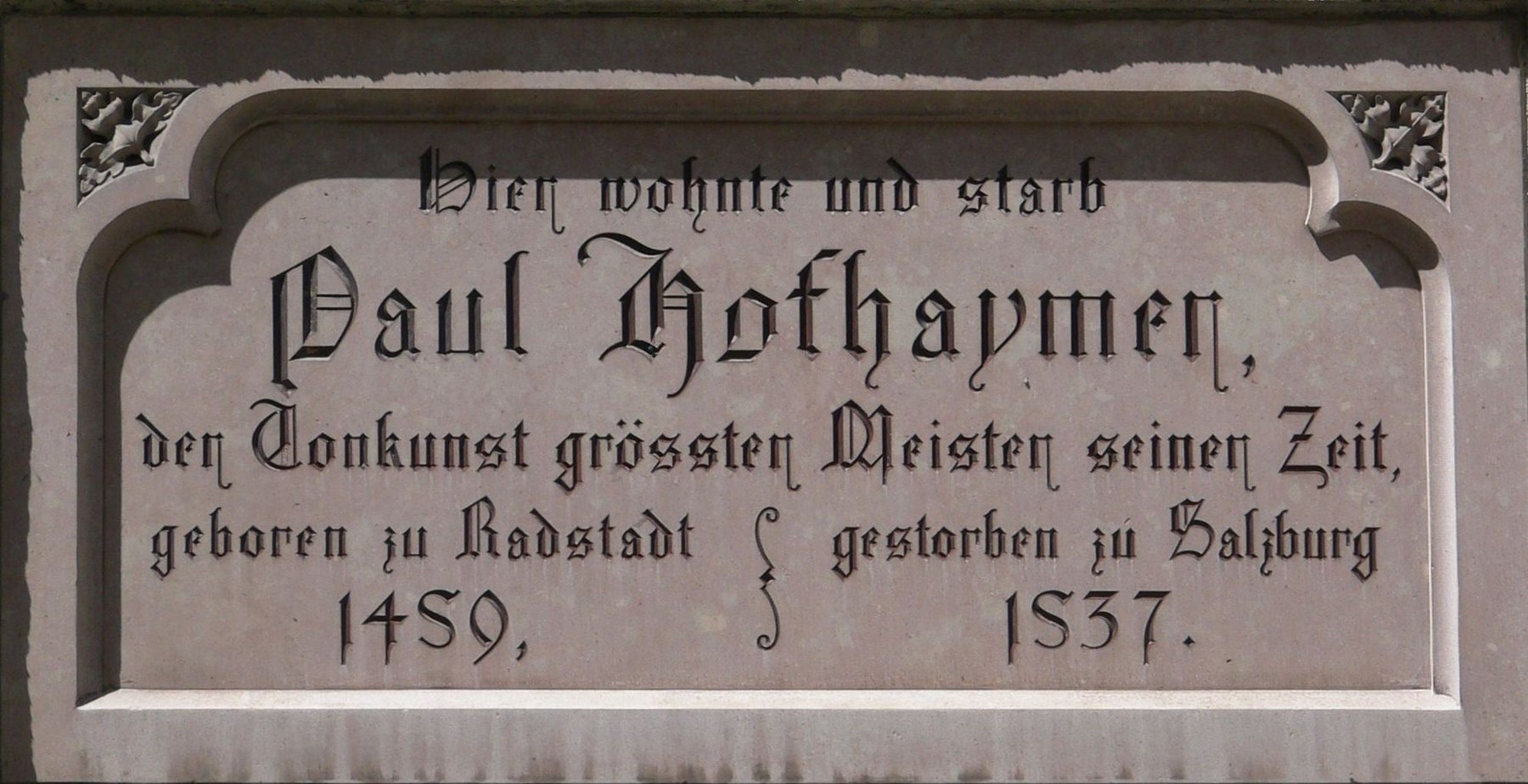The survival of Hofhaimer’s reputation
Hofhaimer’s reputation of course survived for centuries, although it is questionable whether he would have enjoyed all its later manifestations. The 19th-century plaque on his Salzburg dwelling (» Abb. Hofhaimers Gedenktafel) suggests a connection between “Gedechtnus” and place, which is already envisaged in the very idea of the epitaph: the famous man is best remembered in the place where he actually is (or was). Thus the visitor to Salzburg who stands in front of the musician’s former house in the Pfeifergasse is in reality paying respect to a place of life – and death.
[1] Innsbruck, Tiroler Landesarchiv, Hs 208/1, fol. 86v. All English translations in the present article are by Grantley McDonald.
[2] Modena, Archivio di Stato, Carteggio Principi Esteri 1623, b.2/3,2,11, 1r; cf. Ludwig Fökövi, “Musik und musikalische Verhältnisse am Hofe von Matthias Corvinus”, in: Kirchenmusikalisches Jahrbuch 1900, 1 ff.; Moser 1929, 18 and n. 40, 173-174.
[3] Modena, Archivio di Stato, CPE Minute b.1644/1,2,9, 1r; cf. Moser 1929, 173-174.
[4] McDonald 2014, 20-21; cf. Moser 1929, 37, 40-41.
[5] McDonald 2014, 26-27.
[6] We are grateful to Prof. Artur Rosenauer, University of Vienna, for this information (Red.).
[7] McDonald 2014, 28-33; cf. Moser 1929, 28 and 183.
[8] St Gallen, Kantonsbibliothek, Vadianische Sammlung ms 30, nº 60; full text in Moser 1929, 37-38.
[9] St Gallen, Kantonsbibliothek, Vadianische Sammlung ms 30, nº 65; full text in Moser 1929, 38-39.
[10] St Gallen, Kantonsbibliothek, Vadianische Sammlung ms 30, nº 60.
[11] “… als zu eyner gezeugnuss, das mich dy Walchen, so doch subtyl synd, auch lobten, und von der musick, so mir got geben hat, auch hyelten”: Letter of 7 February 1518, St Gallen, Kantonsbibliothek, Vadianische Sammlung ms 30, nº 116; cf. Moser 1929, 40.
[12] McDonald 2014, 6-13; extracts in Moser 1929, 42-44.
[13] See » I. Odengesang.
[14] Modern edition: McDonald 2014.
[15] McDonald 2014, 2-41.
[16] McDonald 2014, 12: “Neque est quicquam (ut in summa referam) Principe magis dignum, quam si quibusque ingenuis artibus præstantes animos amet, foueat, tueatur. Datur enim ex hoc æternæ sibi memoriæ occasio. Hoc diuus Maximilianus, cum in alijs, tum in Paulo cognouit.”
[17] McDonald 2014, 34; cf. Moser 1929, 67.
